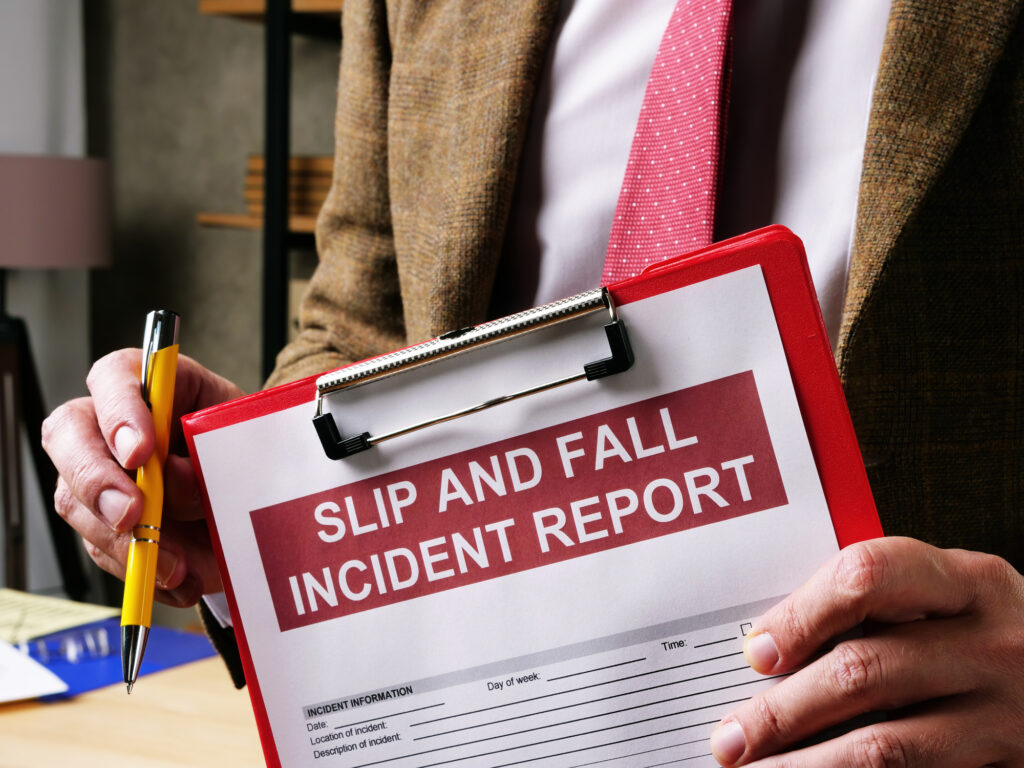Case Win-Worthy: Qualities Of A Successful Personal Injury Lawyer
Personal injury is when someone gets hurt because of someone else’s mistake. This can be physical, emotional, or psychological harm. It can happen in many ways, like slip and fall incidents, car accidents, medical mistakes, or accidents at work. People who get hurt can ask for compensation to help pay for things like medical bills, lost wages, and pain and suffering. They can do this by going to court. Sometimes, insurance companies are involved. It’s important for people who get hurt to get help from a lawyer who knows the law and can make sure they get treated fairly.

A personal injury lawyer can help you navigate the complex legal landscape that often follows an accident or injury. Whether you’ve been in a car crash, slipped and fell on someone else’s property, or suffered harm due to medical malpractice, a skilled personal injury attorney can make a world of difference in your pursuit of justice. It’s essential to consider several key qualities and factors to ensure you choose a legal counsel who’s truly win-worthy. Let’s delve into what sets apart a successful personal injury lawyer:
Seasoned Litigator
When seeking legal representation for a personal injury claim, experience matters significantly. Look for a lawyer with a track record of handling cases similar to yours. An experienced personal injury attorney will have a thorough understanding of the nuances involved, allowing them to anticipate challenges and devise effective strategies.
Specialized Practice
A personal injury lawyer’s expertise should extend beyond general legal knowledge. They should be well-versed in the specific laws and regulations governing personal injury cases in your jurisdiction. From understanding statute limitations to knowing how liability is determined, their expertise can significantly impact the outcome of your case.
A construction accident lawyer, in particular, must have a deep understanding of the industry’s
unique safety standards, worker’s compensation laws, and the myriad of regulations that govern
construction sites. Their specialization allows them to identify specific breaches in safety
protocols or violations of state and federal safety regulations that could strengthen your case.
This expertise not only facilitates a more thorough investigation but also enhances their ability to
argue effectively for your rights and compensation in the event of a construction-related injury.
Expert Negotiator
Many personal injury cases are settled out of court through negotiations with insurance companies. An attorney’s negotiation skills are invaluable in securing a favorable settlement. Look for a lawyer who can communicate persuasively and assertively to ensure you receive the compensation you deserve.
Trial-Ready Preparedness
While settlements are common, some cases do proceed to trial. Your personal injury lawyer should be prepared to go to court if necessary. They should possess strong litigation skills, including the ability to present a compelling argument in front of a judge and jury.
Excellent Communicator
Effective communication is key to a successful attorney-client relationship. Your lawyer should be transparent about the progress of your case, potential challenges, and the legal fees involved. Clear and open communication ensures that you’re always well-informed and can make informed decisions about your case.
Professional Support
Behind every successful personal injury lawyer is a dedicated support team. From paralegals to investigators, these professionals play a crucial role in gathering evidence, conducting research, and managing administrative tasks. A well-rounded support team enhances the lawyer’s ability to handle your case effectively.
Reputable Attorney
A lawyer’s reputation speaks volumes about their competence and credibility. Research online reviews, ask for references from past clients, and seek out testimonials. A personal injury attorney with a strong reputation is more likely to deliver favorable results.
To choose a reputable personal injury attorney, start by researching online reviews on platforms
to assess client satisfaction and peer feedback. Request references from potential attorneys to
contact past clients who can share their experiences regarding the attorney’s professionalism and
case outcomes. Also, look for testimonials, particularly video ones, for more personalized
insights. Verify the attorney’s membership in professional organizations, which reflects their
commitment and recognition in the field.
Consider their experience with cases similar to yours, their courtroom proficiency, and their
communication style to ensure clarity and comfort. Understand their fee structures, typically
contingency-based for personal injury cases, and ensure transparency in terms. Finally, take
advantage of free initial consultations to evaluate their suitability for your case and to clarify any
concerns directly.
‘No Win, No Fee’ Lawyer
Personal injury lawyers usually work on a contingency fee basis. They receive payment only if you win your case. This arrangement aligns their interests with yours and demonstrates their confidence in their ability to secure a favorable outcome.
Knowledgeable and Well-Connected
Navigating the legal system involves understanding local intricacies and having connections within the legal community. A personal injury lawyer with deep roots in your area can leverage these connections to your advantage.
Proactive Professional
In personal injury cases, urgent action is essential to safeguard critical evidence, secure witness availability, and meet deadlines for a favorable outcome. A proactive attorney who takes swift action can preserve crucial evidence and build a stronger case on your behalf.
Lifelong Learner
The legal landscape is constantly evolving, with new laws and precedents emerging. A successful personal injury lawyer is committed to staying updated with these changes through ongoing education and professional development.
Empathic and Compassionate
A personal injury lawyer should not only be well-versed in the legal aspects but also possess empathy and compassion for their clients. Dealing with the aftermath of an accident can be emotionally taxing and having a lawyer who genuinely cares about your well-being can provide much-needed support during a challenging time.

Final Thoughts
In your quest for justice and fair compensation, selecting a personal injury lawyer with these qualities can significantly increase your chances of success. Remember, experience, expertise, negotiation skills, trial readiness, empathy, transparency, and a strong support team are all crucial factors to consider. By carefully evaluating these qualities, you can make an informed decision and secure the legal representation you deserve.

